Sorting worksheets activities for Ages 3-8
23 filtered results
-
From - To
Unlock your child's potential with our engaging sorting worksheets designed for ages 3-8! These interactive activities help young learners develop essential logical thinking and categorization skills while keeping them entertained. With colorful images and fun themes, children will sort by size, color, shape, and more, enhancing their cognitive abilities and fine motor skills. Grounded in early childhood education principles, our worksheets are perfect for both classroom and home use. Whether it's matching animals with their habitats or grouping objects, these sorting activities provide a solid foundation for learning and are an enjoyable way to explore the world. Download and start sorting today!
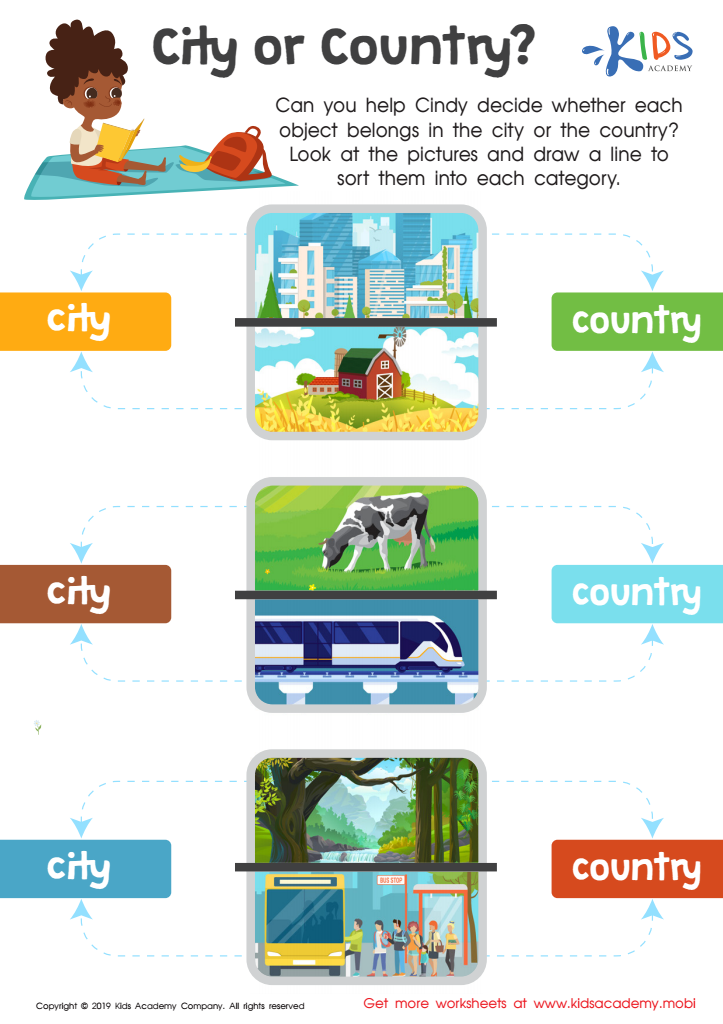

City or Country? Worksheet
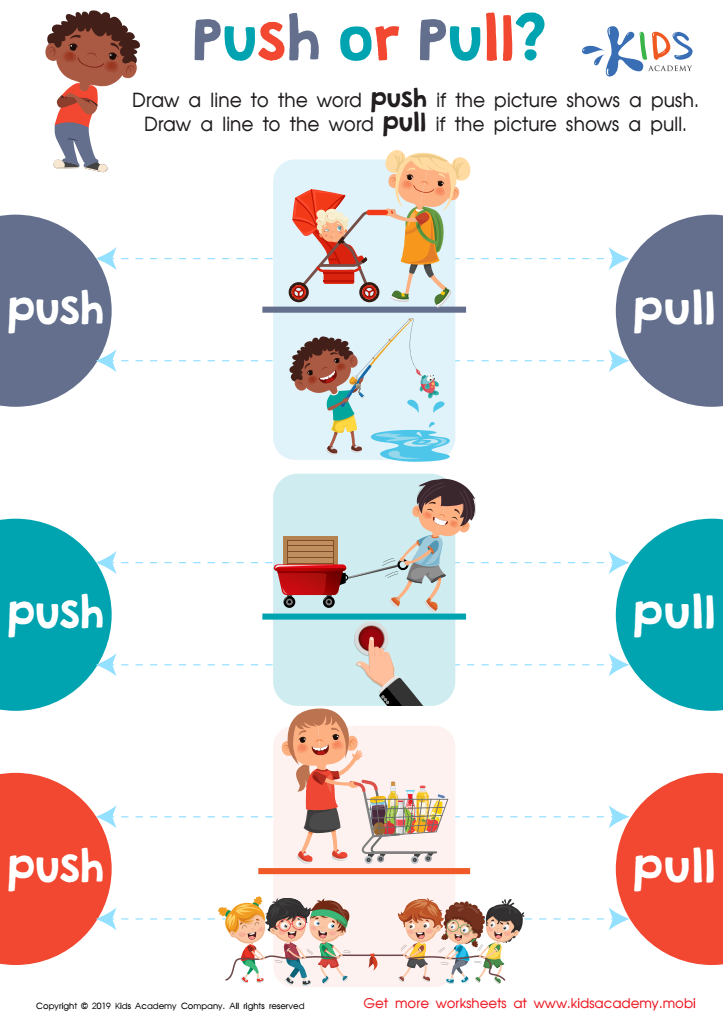

Push or Pull? Worksheet
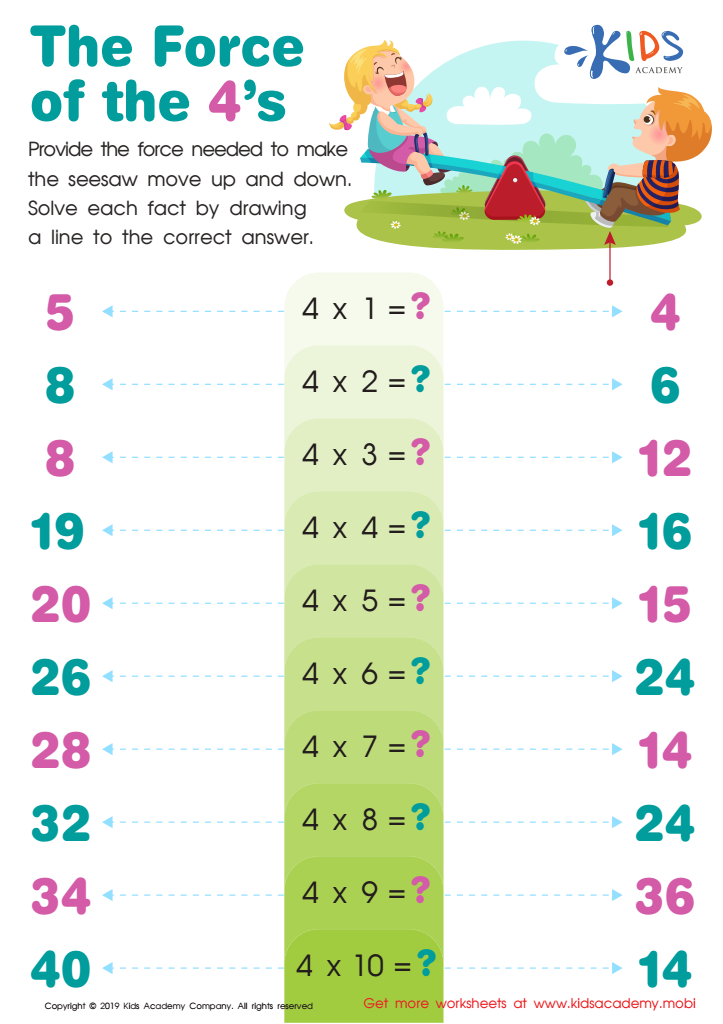

The Force of the 4's Worksheet
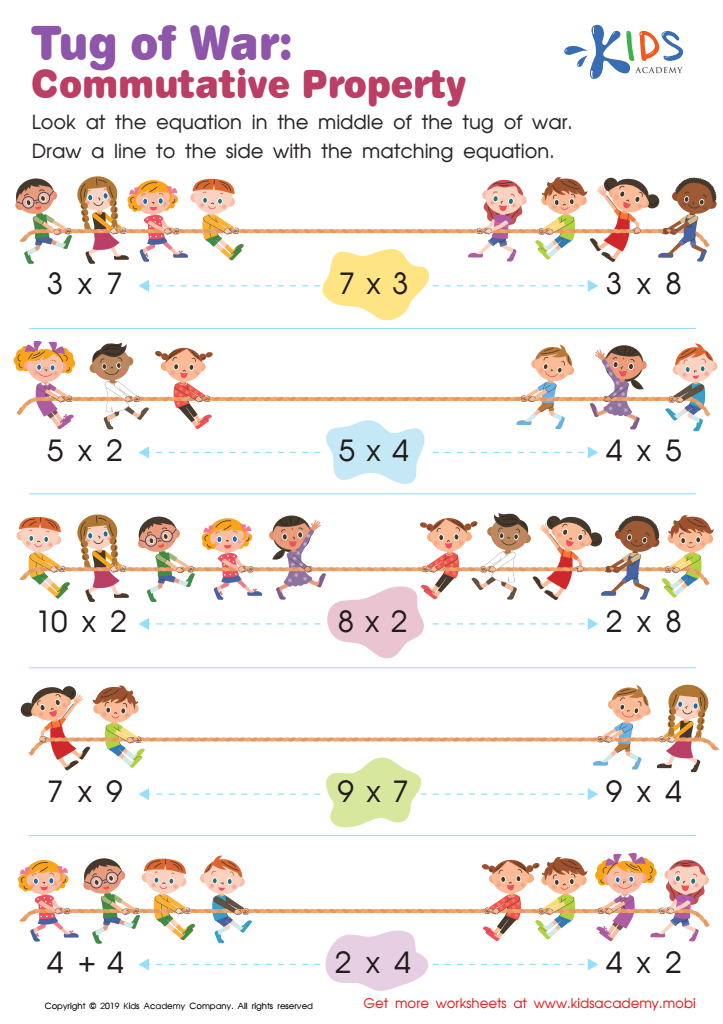

Tug of War: Commutative Property Worksheet
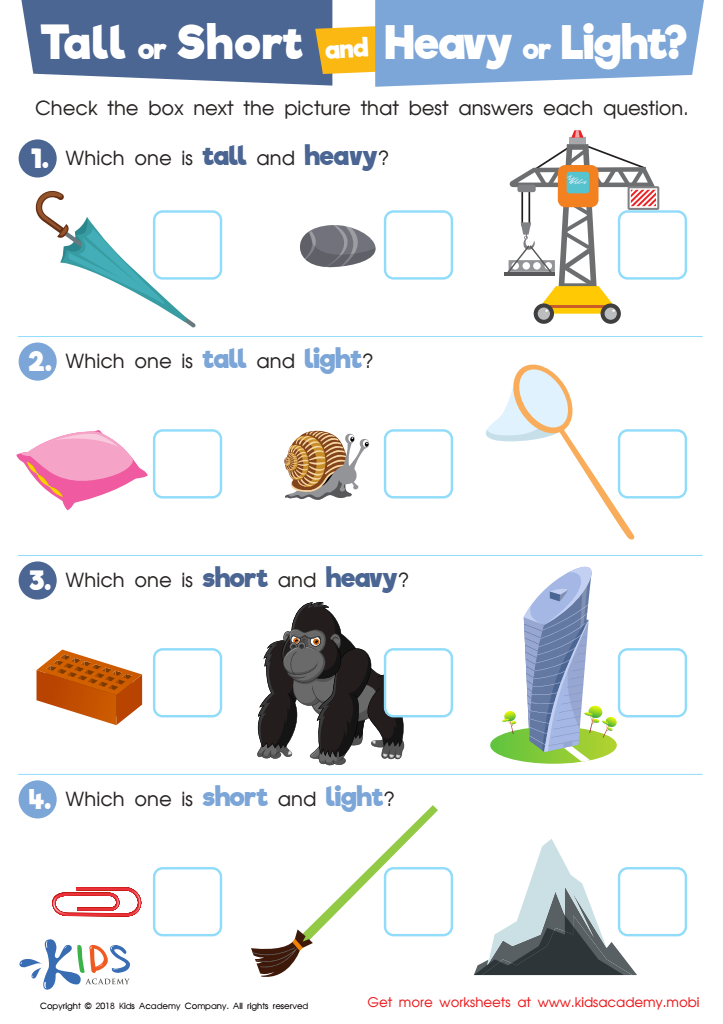

Tall or Short and Heavy or Light? Worksheet
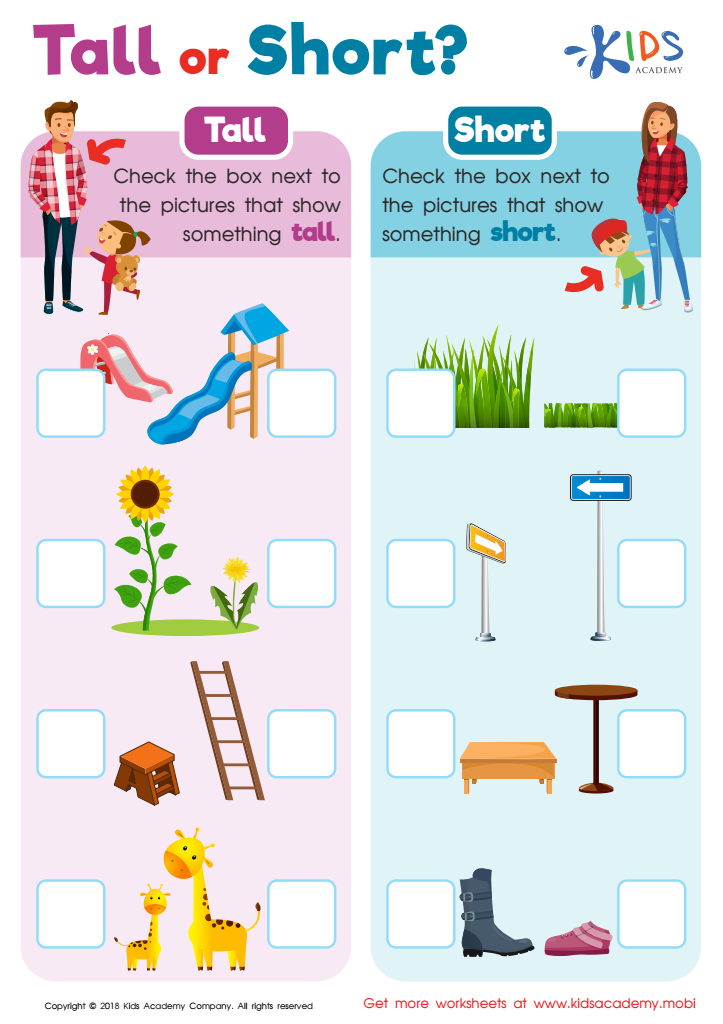

Tall or Short? Worksheet


Sort and Count to the Moon Worksheet
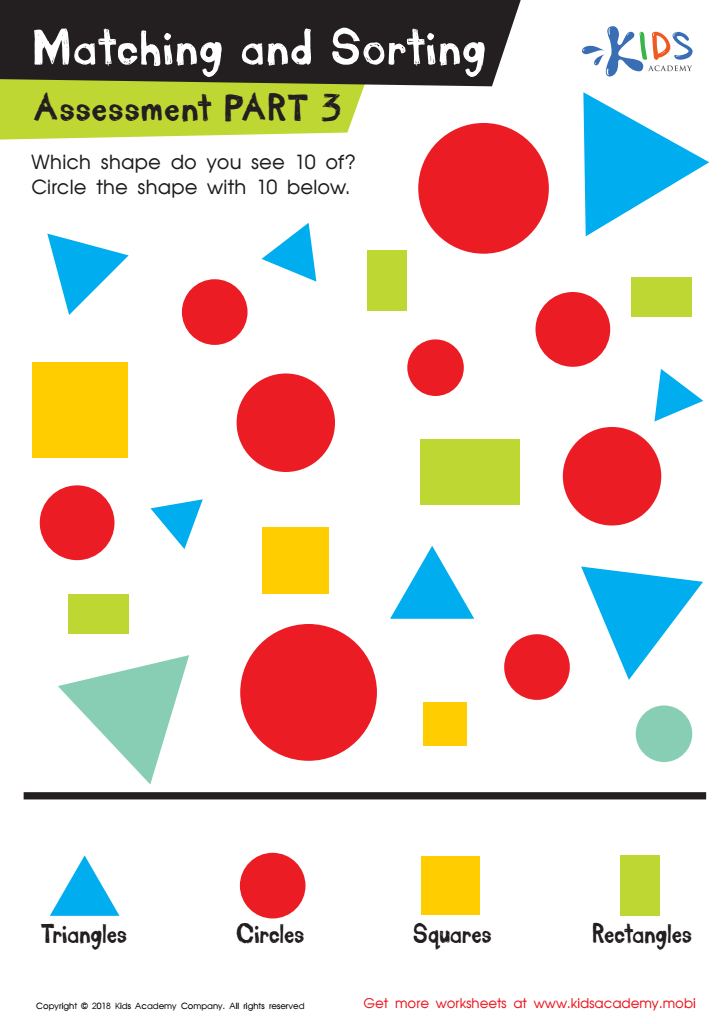

Matching and Sorting for Kindergarten: Assessment 3 Worksheet
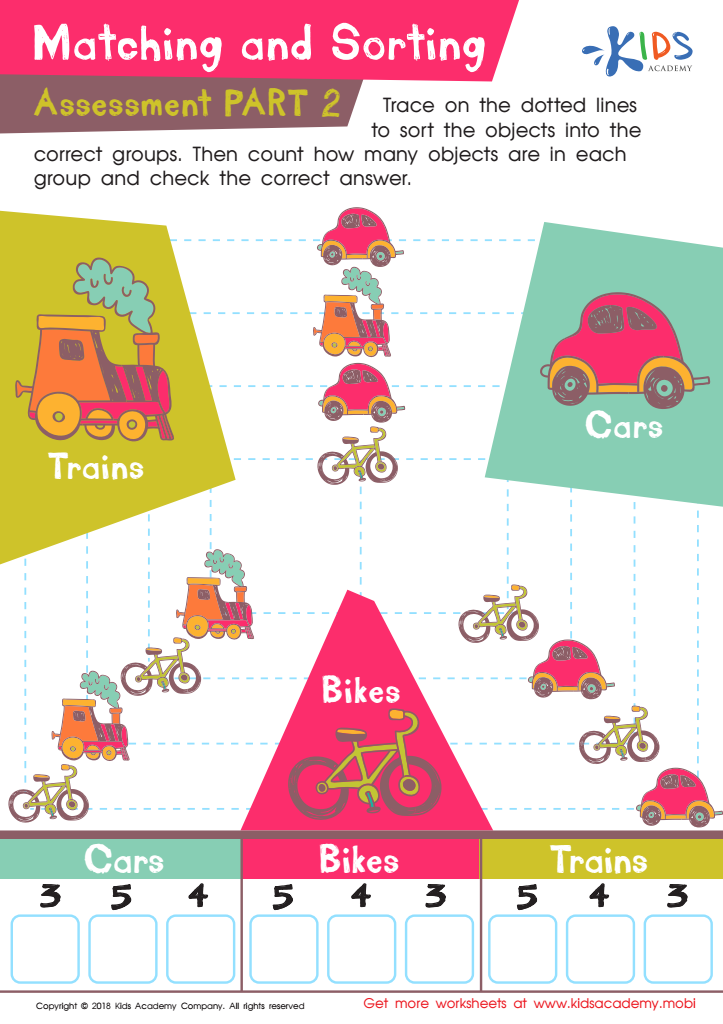

Matching and Sorting for Kindergarten: Assessment 2 Worksheet
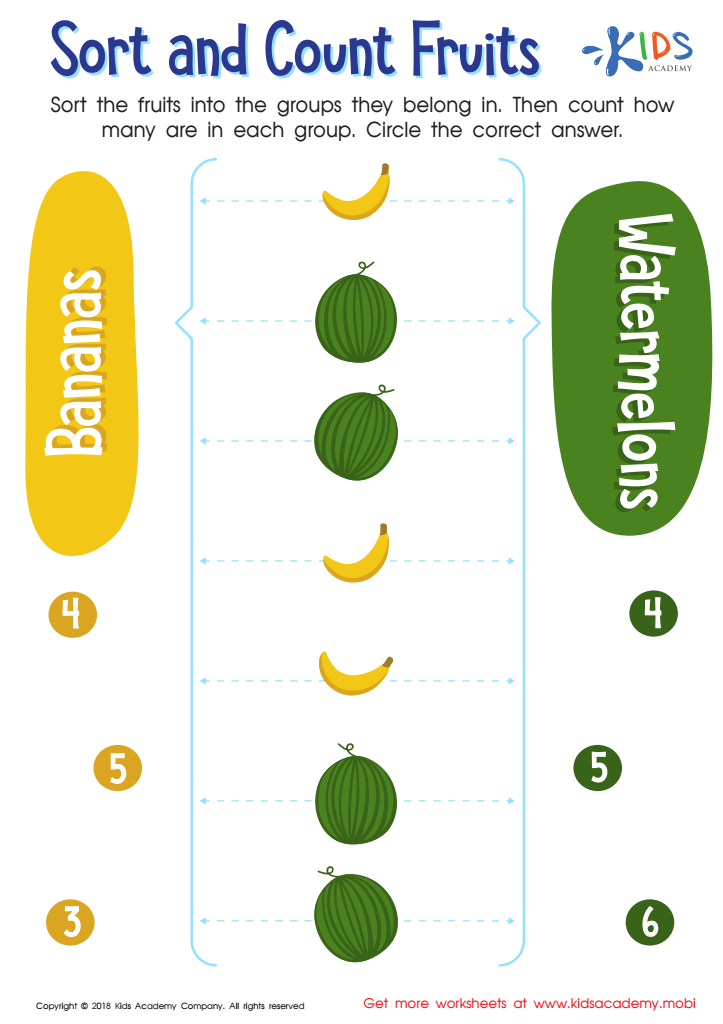

Sort and Count Fruits Worksheet
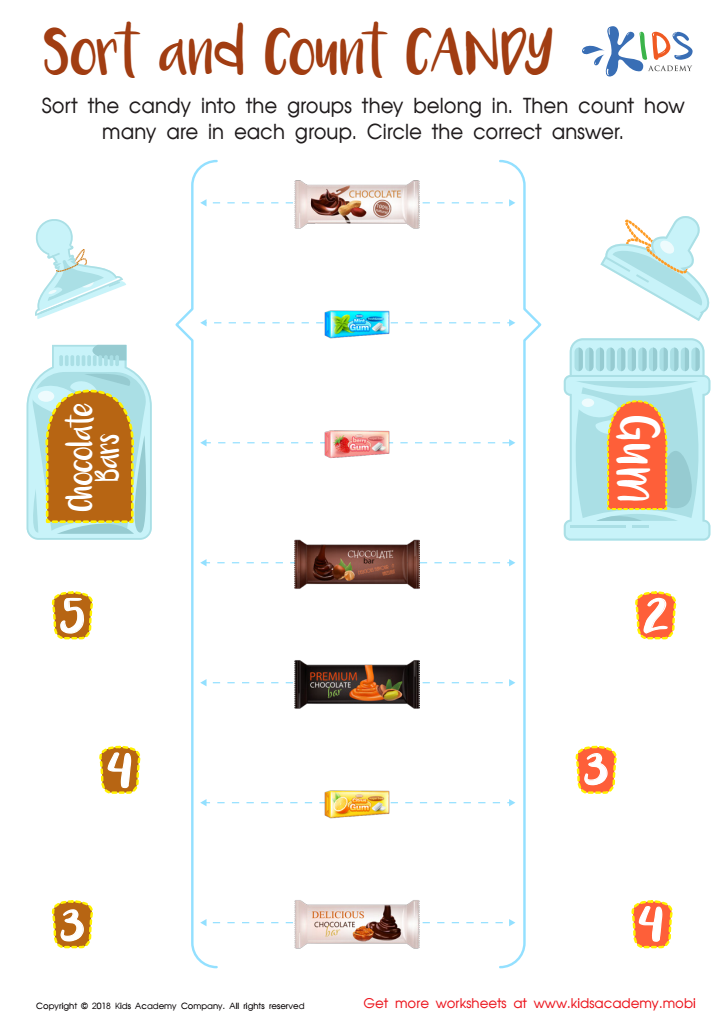

Sort and Count Candy Worksheet
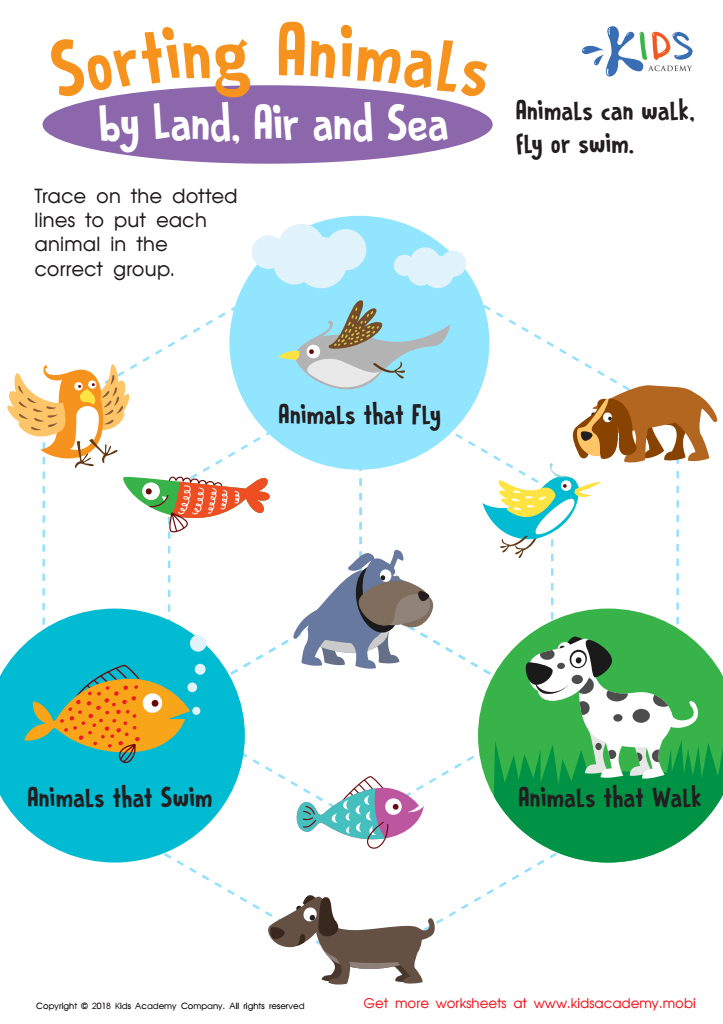

Sorting Animals by Land, Air and Sea Worksheet
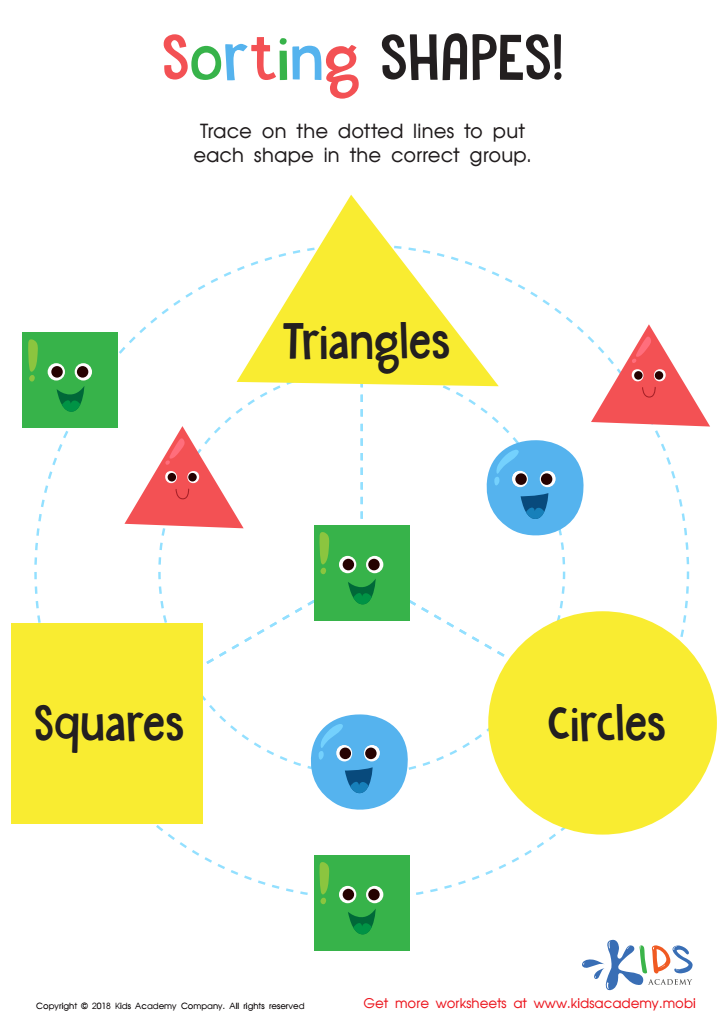

Sorting Shapes - Part 3 Worksheet


Sorting Animals in 3 Groups Worksheet
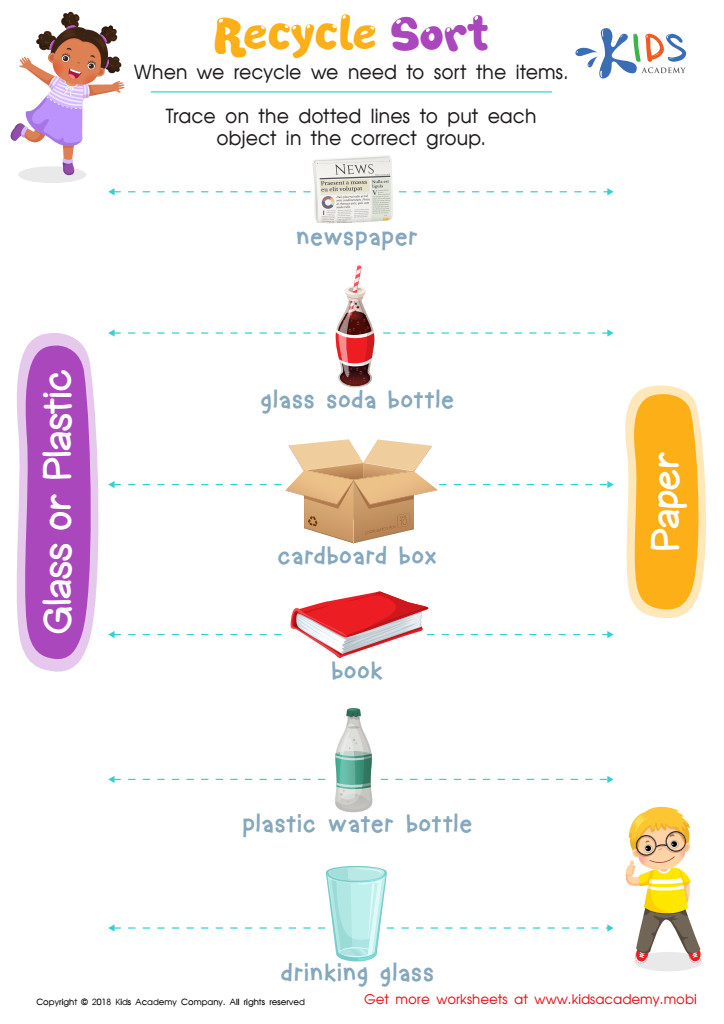

Recycle Sort Worksheet
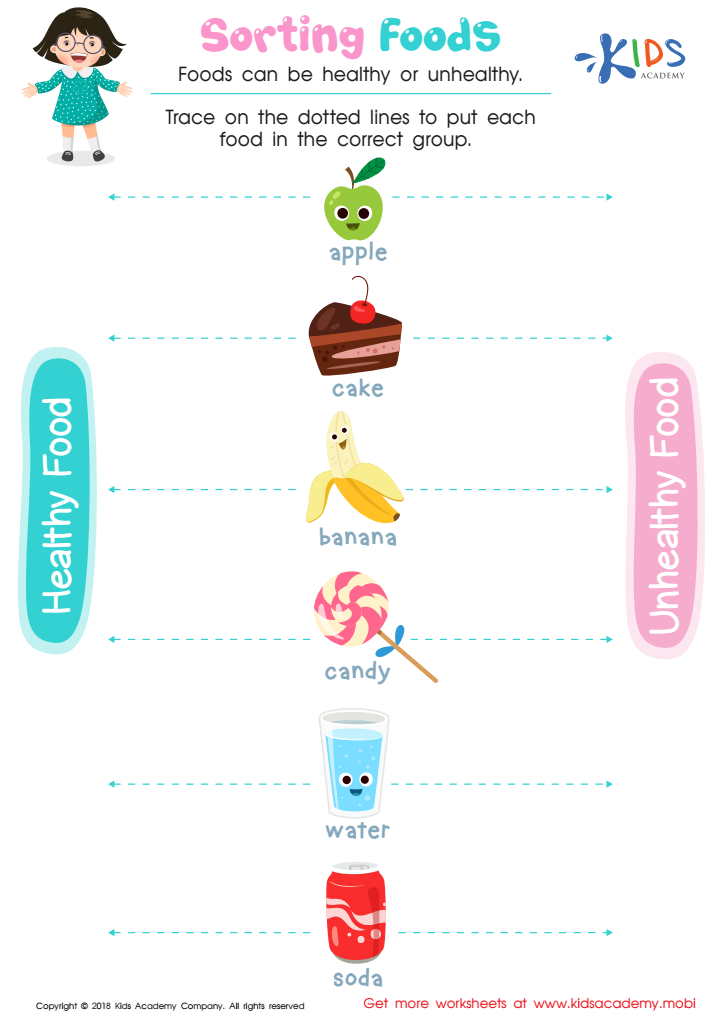

Sorting Food Worksheet
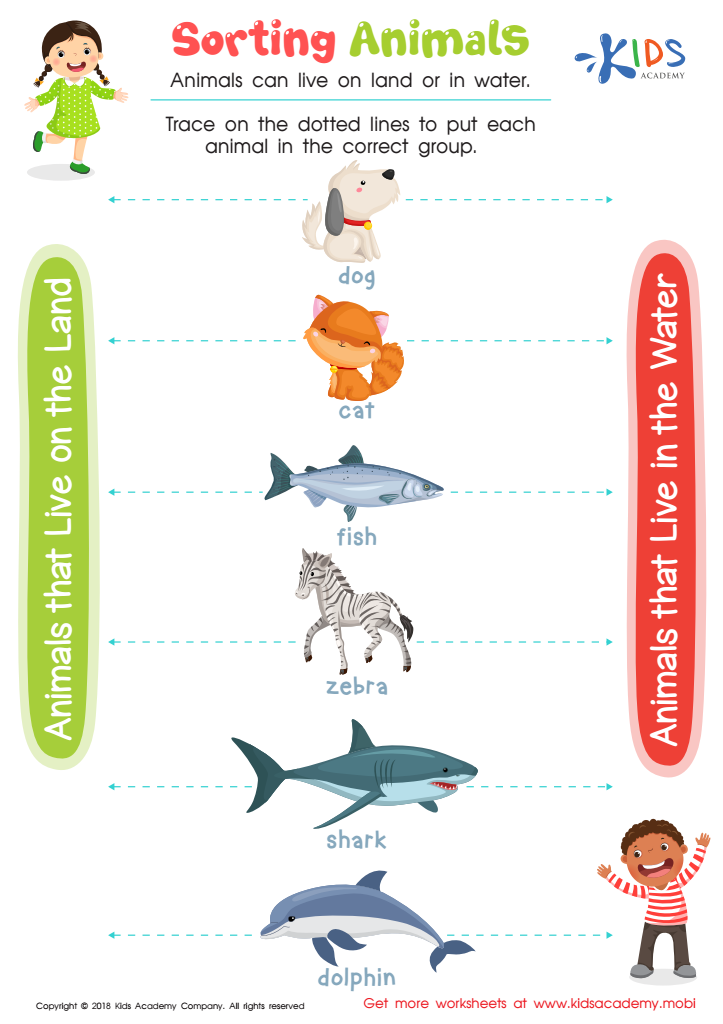

Sorting Animals Worksheet
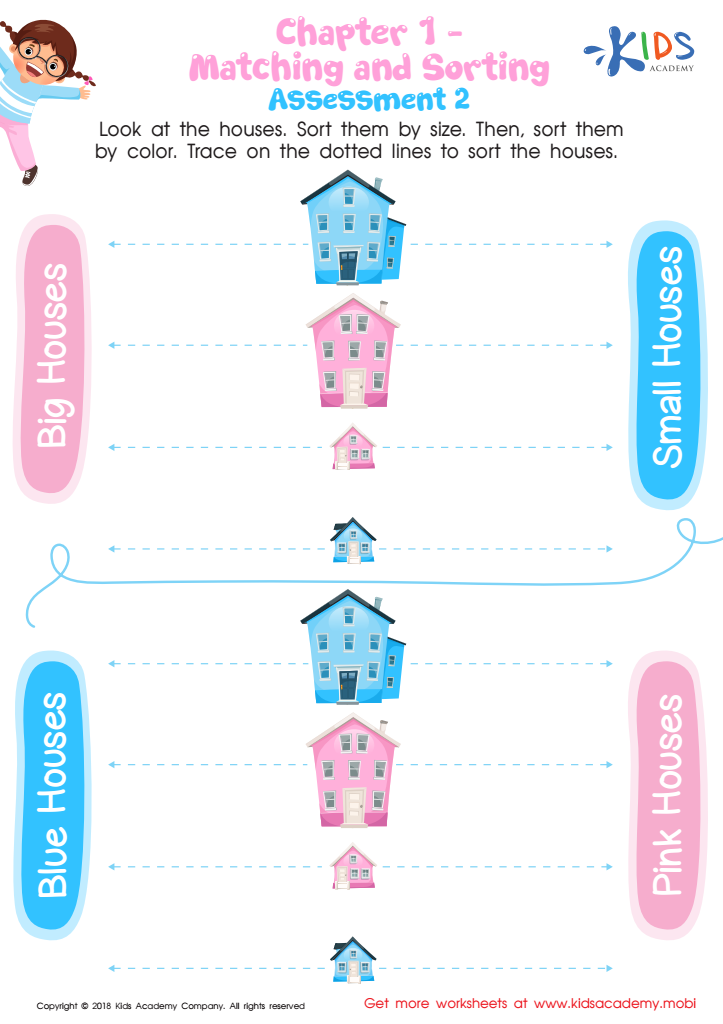

Matching and Sorting for Preschool: Assessment 2 Worksheet
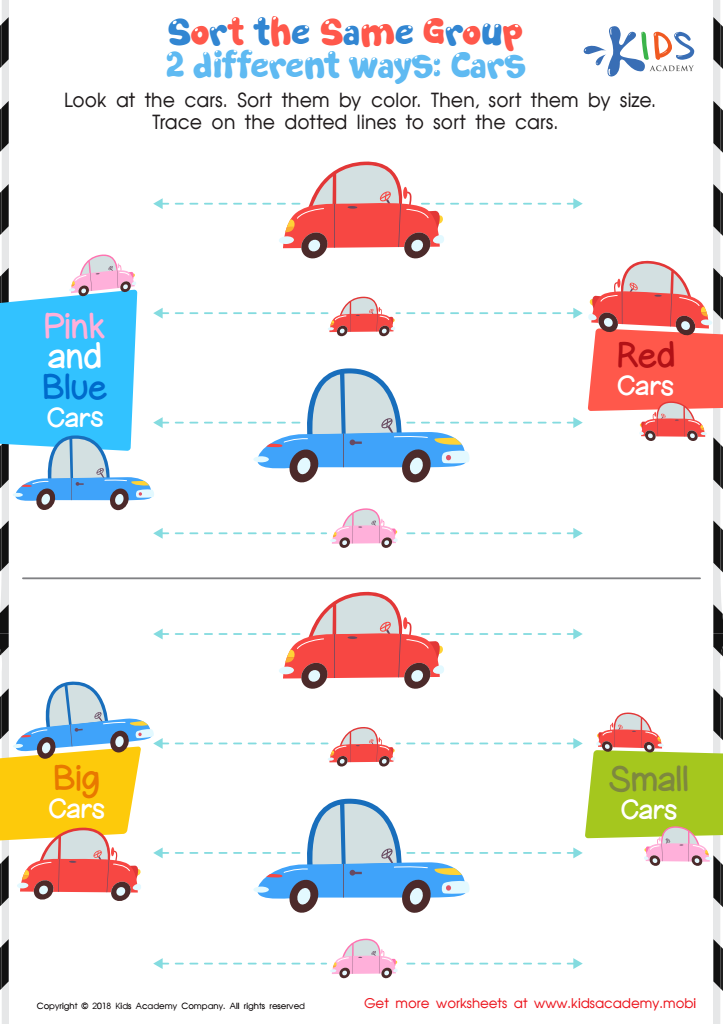

Sort the Same Group 2 Different Ways: Cars Worksheet
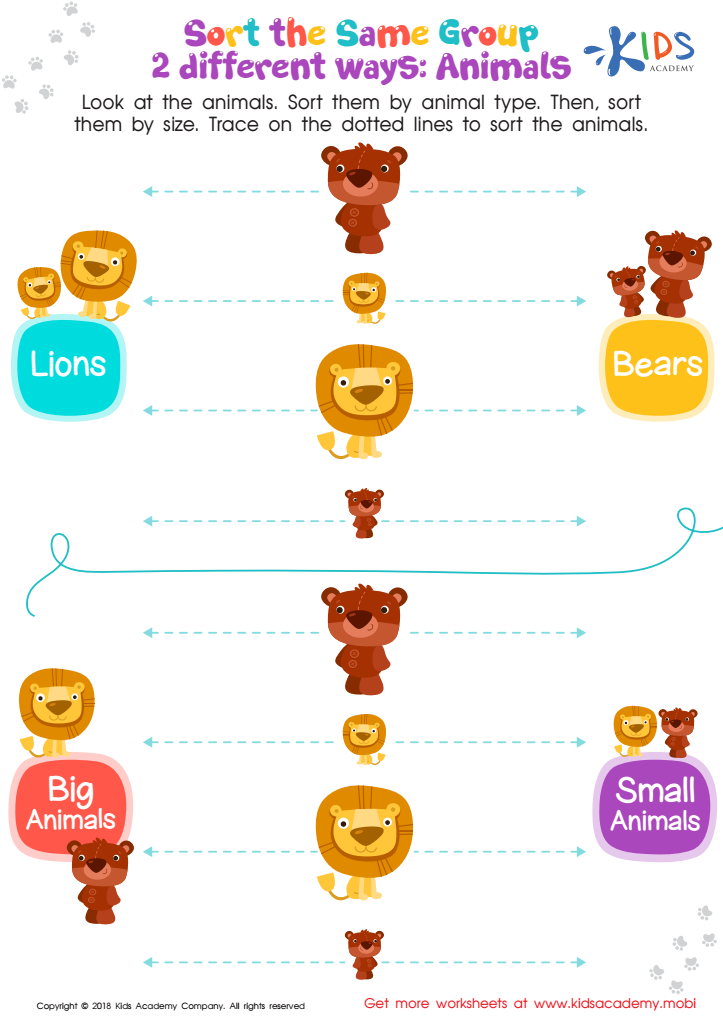

Sort the Same Group 2 Different Ways: Animals Worksheet
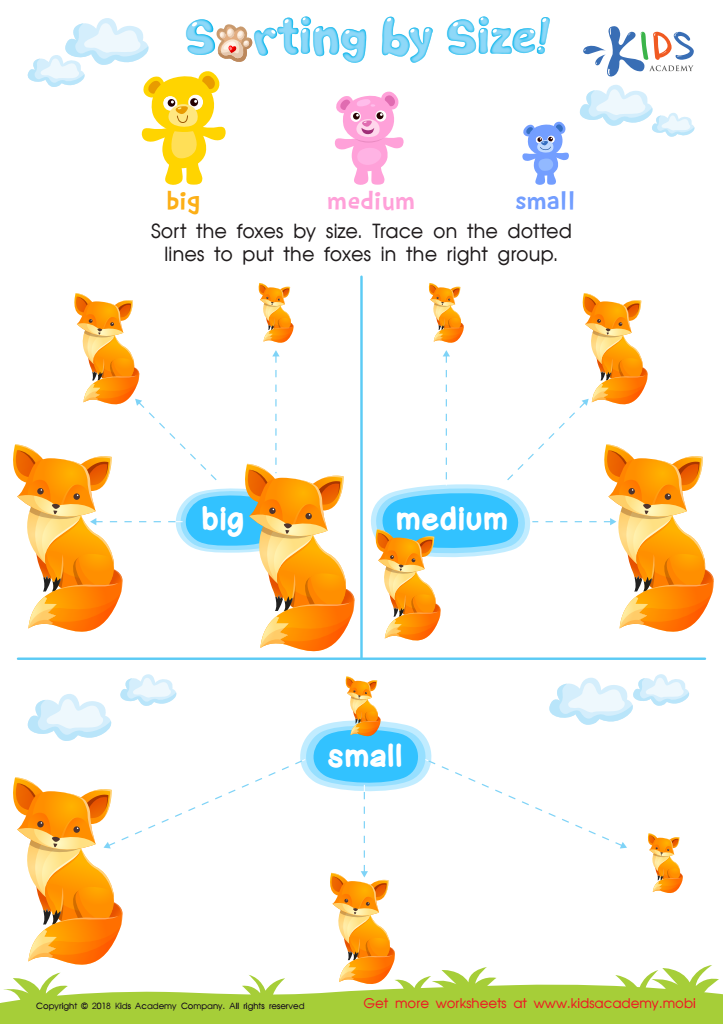

Sorting by Size Worksheet
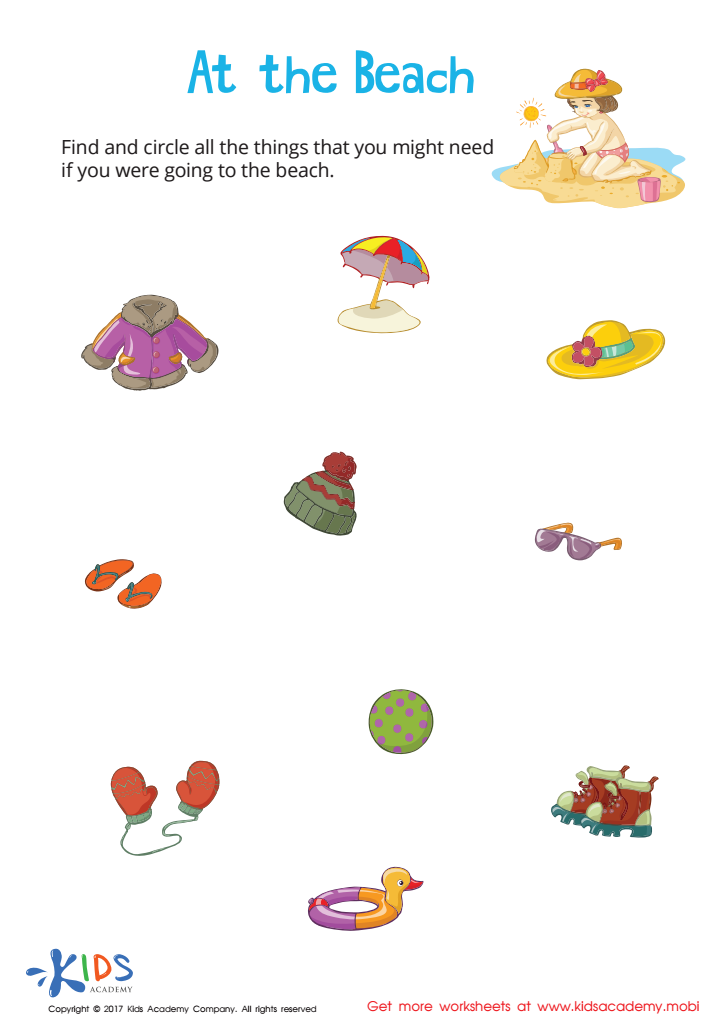

At the Beach Sorting Worksheet
Sorting activities are vital for children aged 3-8 as they play a significant role in cognitive development and early learning skills. These activities promote critical thinking by encouraging children to classify and categorize objects based on similarities and differences. This process fosters analytical skills that are essential for problem-solving later in life.
Moreover, sorting helps enhance children’s vocabulary and communication skills as they describe attributes like size, color, or shape. It also supports mathematical skills such as recognizing patterns and understanding basic concepts related to grouping, which are foundational for future math learning.
Sorting activities cultivate fine motor skills through manipulation of various objects, allowing children to practice hand-eye coordination and dexterity. As they sort items, they also learn to work independently and develop a sense of personal responsibility.
Furthermore, these activities can foster social interactions when done in groups, encouraging teamwork and collaboration. When parents or teachers emphasize sorting activities, they are not only enriching a child’s learning experience but also laying a strong foundation for lifelong skills. Engaging in sorting activities is an enjoyable and educational venture that any caregiver should consider integral to early childhood development.
 Assign to My Students
Assign to My Students



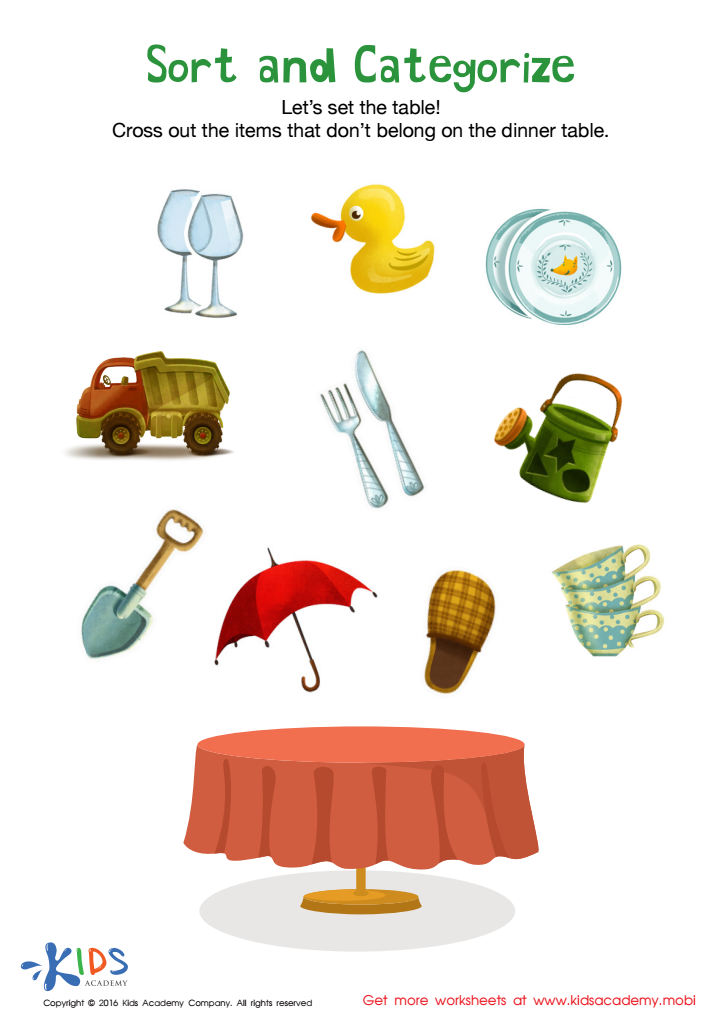





.jpg)














